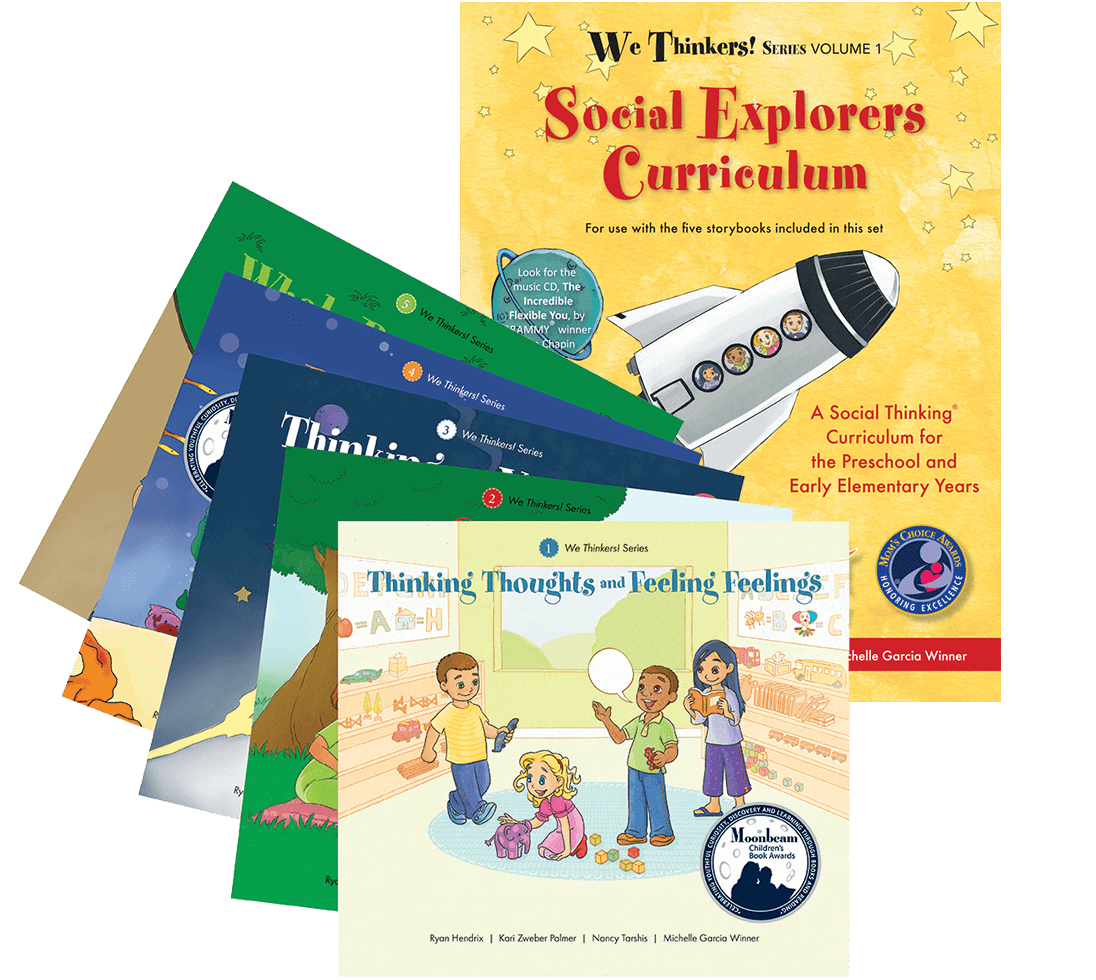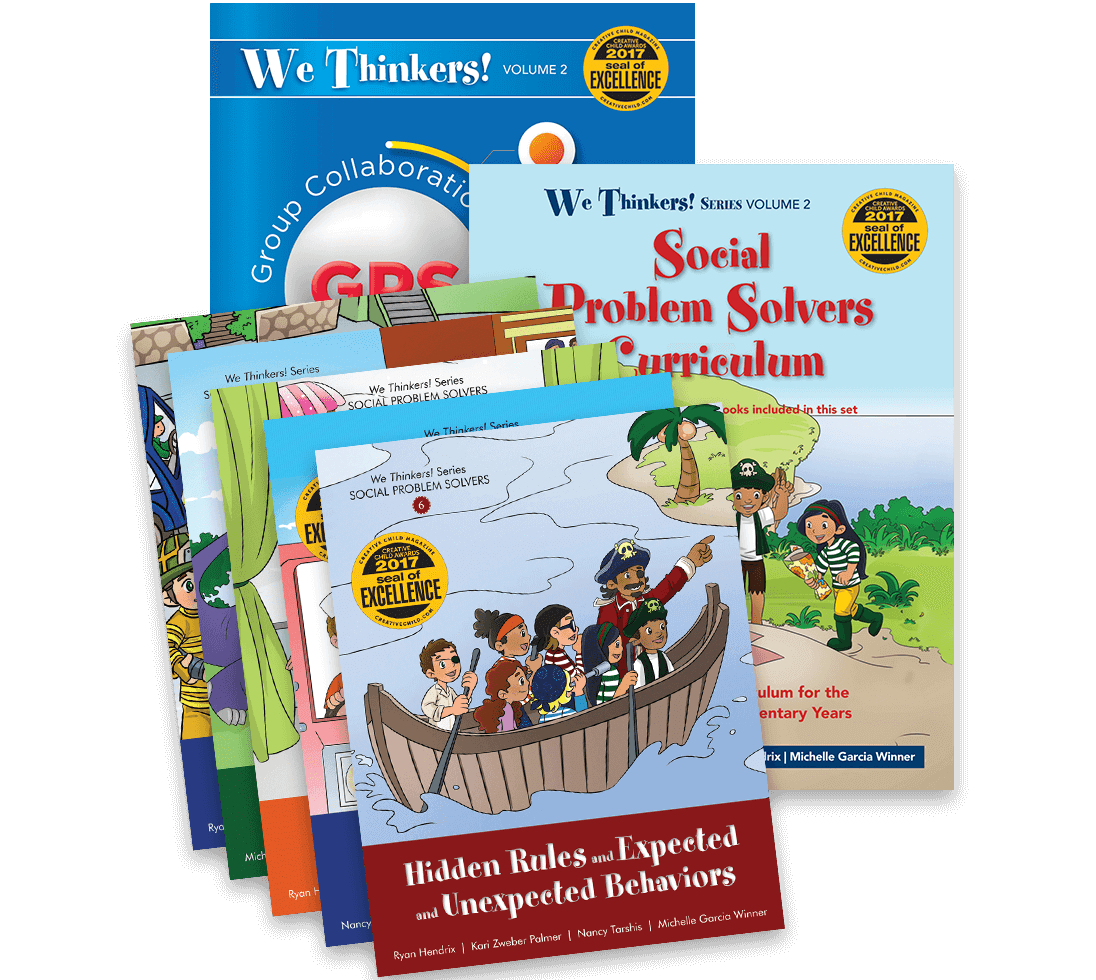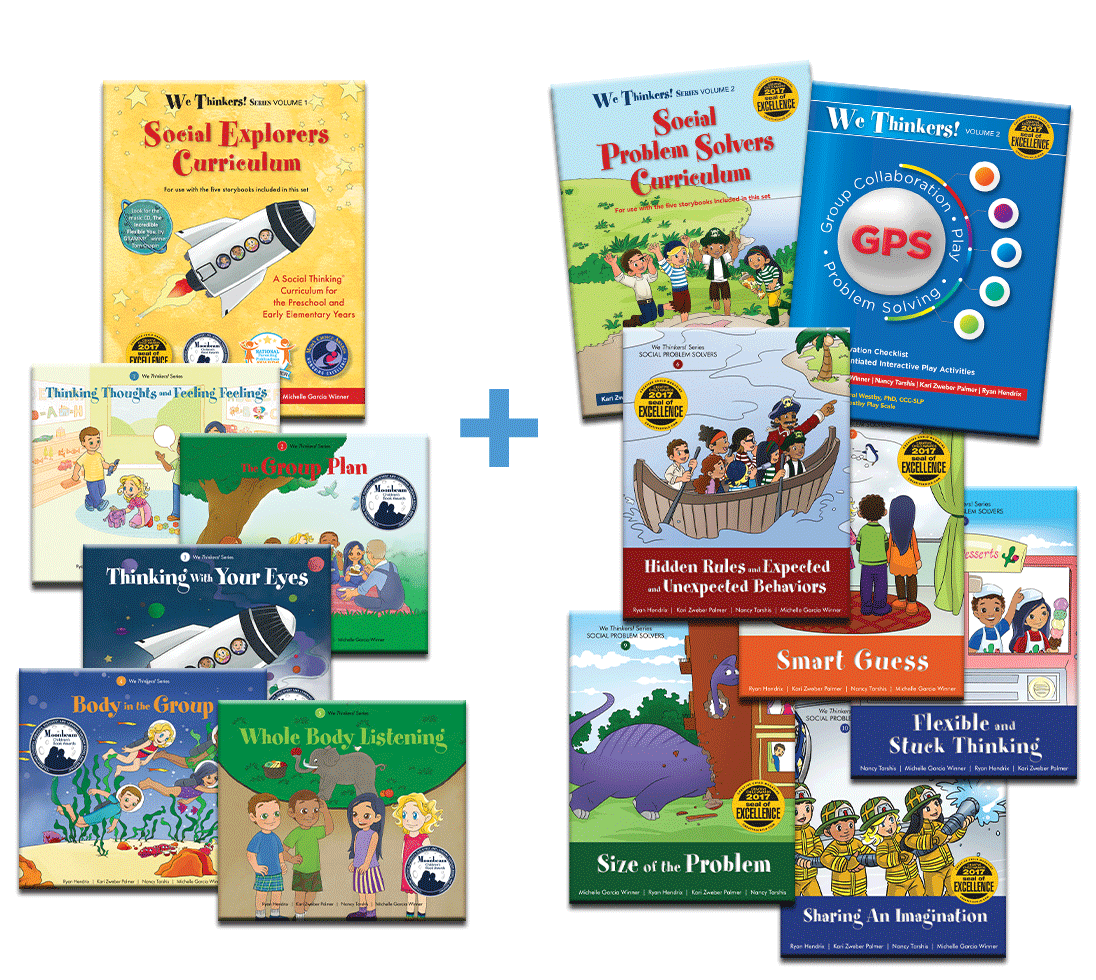
This course explores
- How research on early social competencies can translate into best practices in the classroom through implementing our award-winning We Thinkers! curricula
- Social Thinking Vocabulary concepts that have been adapted for social learners ages 4-7
- Concepts such as the role of play and working as part of a group in the development of self-regulation, social problem solving, and executive functioning
5.5hours of training and CE credit available for select professionals. For any special accommodations or assistance with resources email us.
Helping Early Learners Build Social Competencies Using the We Thinkers! Curriculum Series
Replay access through July 31, 2024
Detailed Description
Who should attend
Educational standards highlight the importance of collaboration, group learning, cooperation, and building relationships for young children. This strategy filled course focuses on the fundamental aspects of how to facilitate social learning in preschool and early elementary-age students (ages 4-7+), including flexible thinking, social language, self-regulation, and executive functioning for group learning experiences, both on the playground and in the classroom. You will learn how research on early social competencies can translate into best practices in the classroom through implementing our award-winning We Thinkers! curricula. We will also explore the Social Thinking Group Collaboration, Play, and Problem Solving (GPS) Scale to understand and support different levels of problem solving and play in the classroom. Attendees will leave with practical strategies and examples to integrate social, academic, and emotional concepts into existing teaching methods.
We will share key strategies and innovative practices for helping early learners who have average to strong language understanding and use develop critical social competencies, including:
- A research perspective on executive functioning and self-regulation and their impact on social communication.
- Social Thinking Vocabulary concepts that have been adapted for social learners ages 4-7 including: group plan, thinking with your eyes, flexible thinking, and recognizing the size of the problem.
- Implementing with fidelity our award-winning curriculum, storybooks, and music collection when using We Thinkers! Volume 1: Social Explorers and We Thinkers! Volume 2: Social Problem Solvers.
- Exploring concepts such as the role of play and working as part of a group in the development of self-regulation, social problem solving, and executive functioning.
- Using the Social Thinking Group Collaboration, Play and Problem Solving (GPS) Scale, to understand and support different levels of play and how they relate to classroom learning.
Throughout the course, you will learn not just the “why” behind the concepts we teach but the “how” with practical strategies and examples that you can start infusing into the things you already do and say.
Course Content Disclosure: While this course includes information about other products and the work of other authors, it focuses primarily on the content included in the We Thinkers! Volume 1: Social Explorers and We Thinkers! Volume 2: Social Problem Solvers curriculum guides and storybooks to teach this information with fidelity. This course, while a new offering, is a combination of four previously offered courses focusing on the We Thinkers! Series.
Who Should Attend
The Social Thinking Methodology is used by a wide variety of professionals, including speech-language pathologists, special and general education teachers, social workers, counselors, clinical and school psychologists, occupational therapists, behavior specialists, and school administrators, to name a few. It’s also used by family members and caregivers across settings.
Learning Objectives and Agenda
Objectives
Participants will be able to:
- Identify at least two key milestones that underlie the development of social cognitive skills from birth to age five.
- Describe two ways to structure learning experiences in preschool and early elementary settings to promote social, emotional, and academic learning.
- Describe at least three ways to teach Social Thinking Vocabulary concepts to students ages 4–7.
- Define two different strategies to provide differentiated instruction of interactive play abilities.
- Describe two strategies that support flexible thinking.
Agenda
45 minutes - Exploring the difference between a skills-based approach and a social cognitive-based approach in teaching social concepts to young learners.
2 hours 25 minutes - Introduction to the key components of social cognitive development from birth to age five.
Explore shared, collaborative, imaginative play (SCIP): how it develops, the relation to social executive functioning, the connection to academics and classroom learning
1 hour 15 minutes - Introduction to Social Thinking’s Group Collaboration, Play and Social Problem Solving (GPS) Scale
Best practices for teaching Social Thinking curricula to early learners using Social Thinking Vocabulary.
1 hour and 8 minutes - Practical strategies to teach these concepts through storybooks, music, structured activities, and play
The tenets of teaching and related strategies embedded in the units of We Thinkers! Volumes 1 & 2
Continuing Education Credit
5.5 hours toward CE credit, if applicable
Click here to see if you can receive CE credit by Profession and by State
We are proud to provide access to continuing education credit for:
- Speech-Language Pathologists
- Educators
- ...and others!
Technical requirements to participate in online training
Streaming compatible browser
The best browser for streaming is Google Chrome. If you are unable to use Chrome, please make sure the version of your browser is the latest and greatest.
Download ChromeHigh-speed internet connection
Make sure you are accessing the online course on a device that is connected to high speed internet—that means your download speed is at least 25Mbps.
Run Internet Speed TestOpen firewall ports
If you are accessing the online course from your school or organization, ask your network administrator if there are any firewall ports that need to be opened.
Learn More










